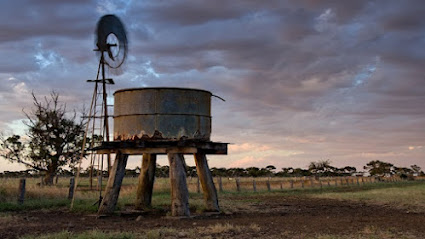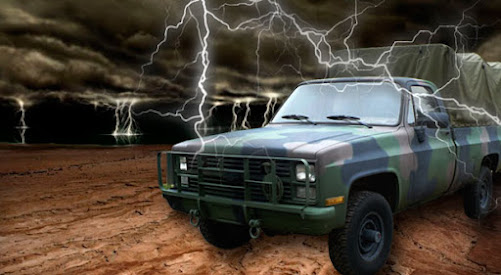How Would A Post-Apocalyptic Society Function Without Electricity And Running Water? (There were many people in America who didn't have electricity and running water well into the 1940s.)
For a person to survive without electricity and running water is actually quite easy. There were still many people in America who didn't have electricity and running water well into the 1940s. Even in Boston there were people on the outskirts who still used outhouses into the 1930s. My mother told of recurring spring project where all the neighborhood men would get together and help each other dig a new "soil pit" and move the outhouse from the old pit to the new one, cover over the old one, then dig up the one from the previous year so the cured "soil" could now be used as fertilizer.
This brings up an important point. In a modern society where the electricity and water failed there would be no way to flush toilets and eventually the sewer pipes would fill up with waste. Modern sewers require a certain flow generated by waste water to move the waste to the treatment plants. A rain storm can help, but these don't happen frequently enough to clear the sewers. In any event, the plants would be non-operational and the stench of sewage and backed up sewage would fill the streets. We saw this in Iraq after the water and sewage treatment plants were blown up.
The real issue isn't about a few people doing without water or electricity -- you can go to Plimoth Plantation or Old Sturbridge Village or Mystic, Ct and see volunteers living in old fashioned towns just as they did 100, 200, 400 years ago. The real issue, in a post apolcalyptic society, is millions of people living without electricity or running water. Now we have a disaster in the making.
What happens when you have too many people in an enclosed area without electricity and no running water is that people drink from lakes, ponds and puddles nearby and defecate and urinate wherever they can, thoroughly polluting any open water worse than it already is, resulting in dysentery and other diseases that would sicken and weaken so many people that death would be rampant. In a society without electricity or running water it would be hard to maintain running gasoline vehicle efficiently since gasoline is mostly moved in volume from tanks by electric pumps. It would be possible to keep some vehicles rolling but much harder to do so and gasoline would get scarcer and once again you would have more hardship since most food is shipped to you from very far away. Eventually some level of privation and hunger would occur. As with dysentery, the people on the margins would be the victims -- the aged, infirm, handicapped, autistic, etc, would die in swaths.
This guide below can help you in a survival situation
If society collapses, you can bet that the foods the pioneers ate will become dietary staples
The Stockpile Savior prepares you to deal with worst-case scenarios with the minimum amount of resources just like our forefathers lived their lives, totally independent from electricity, cars, or modern technology.
So pay chose attention because this video will change your life forever for the good!
Any building with more than a few stories in height would have to be abandoned because it would be too difficult to get up to the higher floors and even when you did, there would be no water or lighting. Buildings would be very dark, especially in corridors and stairwells and thus unsafe from attack or accident. Eventually, with steam powered elevators and roof water collection systems some higher floors might be livable again but this would be some time later since there are very few engineers with the skill to build large scale, safe steam engines and all the factories would be dark, with no working machinery and stifling. It's likely that to keep society functioning the train networks would have to be fully restored, including museum steam trains put back into service. It would be like living in the 1920s with many trains and fewer cars and trucks.
The ability to capture and pump water without electricity has been around since the time of the Romans, and later refined by people like Leonardo da Vinci who invented a screw-powered pump to move water up some great distances. We would have to resort to hand dug wells and hand pumps to move water. Again, these methods work for small populations but the larger the population the more difficult it becomes. Rome, a city of a million people, was serviced by 14 aqueducts bringing water into the city and when the city was sacked, the first thing the attackers did was knock down the aqueducts. Without water, the population was unable to stay in the city and abandoned it, allowing it to be easily invaded.
Wells would need to be dug by hand. The Romans dug the deepest human-dug well in Syria. It was 950 feet deep before it struck water. The thing that typically determines the maximum depth of a well is the weight of the rope required to pull up a bucket of water. If the well is too deep, the rope pulls itself apart before it can even bring a single bucket of water to the top. In the case of the well that was 950 feet deep the Romans put stages at various levels and required slaves to be at each stage to bring the water up a section at a time. It was an enormous effort to get even a single bucket of water to the surface.
Without electricity medicine would go back to the 1700s. It would be impossible to manufacture most modern drugs, even drugs like penicillin, at least in practical lots. There would be no refrigeration to preserve drugs or blood. Surgery would be crude because there would be no electronic sensing devices, no CAT scans or EKGs or other monitors. Anaesthesia would revert back to simple ether. Operating theaters would have to be lit by the sun or burning magnesium. There would be a resurgence of gas lamps, oil lamps, and kerosene lamps as long as flammable oils could be found and the use of these weak tools for light would result in people going to bed earlier and waking up with the sun. There would also be many more house fires with little way to extinguish them since there would be no way to move water except by hand pump or bucket brigade, resulting in buildings burning to the ground or entire neighborhoods and city blocks burning to the ground.
The lack of running water and electricity makes cities mostly impractical and after a short time people would be migrating to the countryside where open warfare would take place between property owners and refugees seeking food. Almost everyone would have constant diarrhea because almost all flowing water contains giardia, a parasite found in the fesces of animals in the woods, although eventually we might adjust to this bug. Nevertheless, the aged and infirm would again die in very large numbers because they would become weak and dehydrated as a result of the diarrhea.
People who had farmland would find their land and crops overrun by multitudes of starving people seeking food as they left the cities. Martial law would most certainly be in force. The Army would be employed to maintain order in key areas using stored diesel for their trucks and trains for mobility. The government would try to organize trains to replace the interstate trucking system but it would take time and not have the capacity to supply the entire population. Moreover, that rail system has been shrinking rapidly since the 1950s leaving more and more of the country with no rail coverage.
Over time, there would be millions of deaths and when cold weather came it would be a desperate fight to stay warm in homes that have unusable oil or gas furnaces and no fireplaces and certainly no supply of seasoned firewood or stored food. The first winter would no doubt be a disaster with many people, weakened by hunger, dying of cold. The very young would be extremely susceptible. If a major virus took hold during this period the population would be decimated.
Eventually, we would reach equilibrium and society would be rebuilt around buildings with lower heights, extensive use of steam power and diesel, since diesel power works without electricity, and a world of expanded rail systems, horse and buggies and oxen and steam cars. There would have to be rules about horses in cities, since at the turn of the century, NYC was on the verge of collapse because it was unable to deal with the increasing amount of horse waste building up on the streets. A good account of how the subway and car saved the large American city is outlined in the book "The Race Underground".
We would have the ability to maintain good basic hygiene and modern medical techniques, but without electricity, there would be reduced diagnostics and surgery to repair cancers, tumors and so forth. Streets would be dark. Highwaymen would be common, robbing people who ventured outside at night. The local community would become important again as malls and plazas would be almost impossible. Local craft making and apprenticeships would be become important; local steel and iron making would reappear. Pollution of air, streams and lakes would grow. There would be a great deal of smog and of smoke, constant tree-cutting and clearing to restore farmlands and build firewood stocks for the winter.
Once equilibrium was re-established, society would probably resemble the mid-19th century, but this would only be after the deaths of millions and the imposition of harsh punishments and order maintained by Martial Law by the government. The world would grow smaller again and as balance was restored we would see more warfare over territorial resources such as arable farmland, iron, timber and so forth. It would be a societal mix of modern weapons and machines in a Victorian era society, with steam becoming king once again.
The most shocking article can be found below.
Liberal’s hidden agenda: more than just your guns…
… the impending collapse of the US food supply system
will steal the food from your kids’ tables…
Watch this video below to find out the great secrets hidden by the government.








Comments
Post a Comment